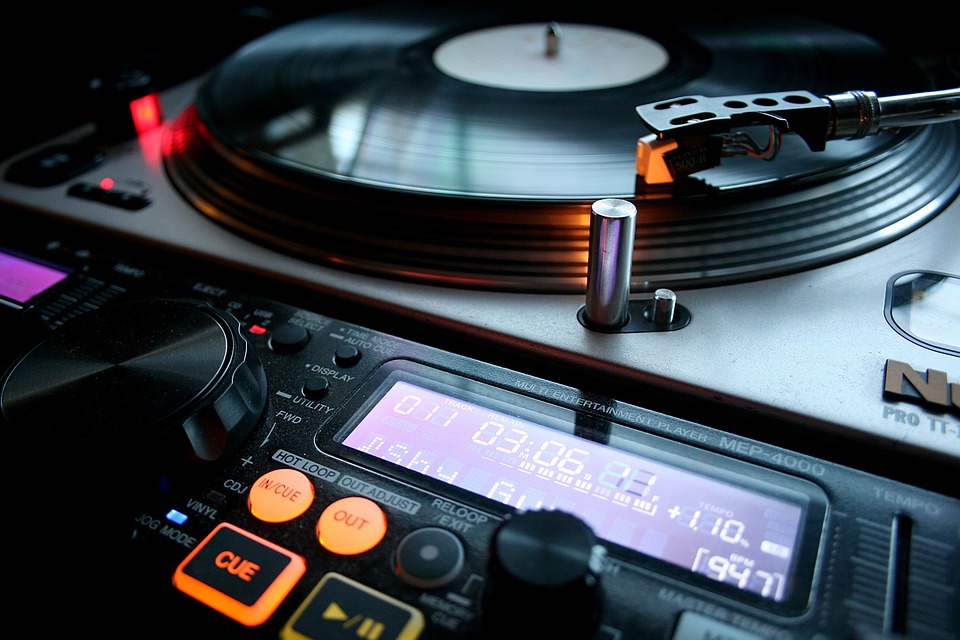Using an audio interface with RCA inputs can significantly enhance your music production and playback experience. This article explores the various advantages of integrating an audio interface with RCA inputs into your setup, providing clear insights for both beginners and seasoned musicians.
Understanding Audio Interfaces
An audio interface is a vital piece of equipment in the world of music production and recording. It acts as a bridge between your instruments, microphones, and your computer or recording device. By converting analog signals into digital data, audio interfaces allow musicians and producers to capture high-quality sound efficiently. They come equipped with various input and output options, including USB, XLR, and RCA connectors.
The primary purpose of an audio interface is to improve sound quality, enabling the recording of professional-grade audio. For musicians and producers, having a solid audio interface is crucial for achieving clarity and precision in their recordings. RCA inputs, in particular, offer a unique set of advantages that can enhance your audio setup.
High-Quality Sound Capture
One of the main benefits of using an audio interface with RCA inputs is the high-quality sound capture it provides. RCA connections are known for their ability to transmit audio signals without significant loss in quality. This is particularly important for musicians who require accurate sound reproduction when recording instruments or vocals.
When using RCA inputs on an audio interface, you can achieve a clean signal path. This means that the audio captured is true to the original sound, preserving the nuances and dynamics of the performance. Whether you are recording vocals, guitars, or synthesizers, having a high-quality capture ensures that your final mix sounds professional and polished.
Versatility in Connections
Audio interfaces with RCA inputs offer a versatile connection option for a range of audio equipment. RCA connectors are commonly found on various devices, including mixers, turntables, and home audio systems. This compatibility allows musicians to easily integrate different gear into their setup without the need for additional adapters or converters.
This versatility is especially beneficial for those who work with analog equipment. For instance, if you are a vinyl enthusiast, connecting a turntable to your audio interface using RCA inputs can enhance your recording process. You can digitize your vinyl collection and enjoy the warm sound of analog recordings while still benefiting from modern digital editing tools.
Ease of Use
Another significant advantage of using an audio interface with RCA inputs is the ease of use it offers. RCA connections are straightforward and intuitive, making them ideal for both beginners and experienced users. Setting up an audio interface with RCA inputs typically requires minimal technical knowledge, allowing musicians to focus on their creativity rather than troubleshooting complex setups.
Most audio interfaces are designed with user-friendly interfaces, often featuring visual indicators and straightforward controls. This simplicity is particularly advantageous in live performance settings, where musicians need to set up quickly and efficiently. RCA inputs can be easily plugged in and out, making adjustments during a performance hassle-free.
Improved Monitoring Capabilities
Using an audio interface with RCA inputs enhances monitoring capabilities, allowing musicians to listen to their recordings in real-time. Many audio interfaces come with built-in headphone outputs and monitor outputs, enabling you to connect studio monitors or headphones directly.
This feature is crucial for musicians who need to monitor their sound while recording. RCA inputs ensure that the audio signal remains clear and undistorted, providing accurate feedback. By being able to hear precisely what you’re recording, you can make informed adjustments to your performance, resulting in a better final product.
Enhanced Mixing and Mastering
Mixing and mastering are essential stages in music production, and using an audio interface with RCA inputs can greatly enhance these processes. RCA connections allow for a straightforward transfer of audio between your interface and mixing equipment, such as external mixers or effects processors.
This direct connection can streamline the mixing process, enabling you to apply effects and adjustments with minimal latency. Additionally, RCA inputs make it easy to integrate hardware synthesizers or samplers into your setup, allowing for more creative sound design options during the mixing phase. The flexibility of RCA connections helps you achieve a polished final mix that meets professional standards.
Cost-Effectiveness
For many musicians, budget constraints are a significant concern. Audio interfaces with RCA inputs can be a cost-effective solution for achieving high-quality audio without breaking the bank. RCA cables are relatively inexpensive, and many budget-friendly audio interfaces feature RCA inputs.
Investing in an audio interface with RCA inputs can provide a solid platform for music production without requiring a significant financial commitment. This makes it an attractive option for beginners who are just starting their musical journey and for seasoned musicians looking to expand their setup without overspending.
Durability and Reliability
RCA connectors are known for their durability and reliability. Unlike some other types of audio connections, RCA plugs are less prone to wear and tear. This robustness is particularly advantageous for musicians who frequently transport their equipment or perform live.
Using an audio interface with RCA inputs can provide peace of mind, knowing that your connections are secure and reliable. This reliability is crucial during live performances or recording sessions, where any signal loss or interference can disrupt the flow of creativity and performance.
Compatibility with Various Audio Formats
RCA inputs are compatible with a wide range of audio formats, making them an excellent choice for diverse music production needs. Whether you are working with analog synthesizers, digital audio workstations (DAWs), or external effects processors, RCA connections can accommodate various devices seamlessly.
This compatibility allows musicians to experiment with different audio sources and formats, fostering creativity and innovation in their music production. The ability to connect various devices using RCA inputs can lead to unique soundscapes and richer musical compositions.
Conclusion
In conclusion, using an audio interface with RCA inputs offers a multitude of benefits that can significantly enhance your music production experience. From high-quality sound capture to versatility in connections, ease of use, and improved monitoring capabilities, RCA inputs provide a reliable solution for musicians of all skill levels. Additionally, their cost-effectiveness and durability make them an attractive option for anyone looking to elevate their audio setup.
By incorporating an audio interface with RCA inputs into your music production workflow, you can achieve professional-grade recordings and enjoy a more creative and efficient process. Whether you are a beginner or a seasoned musician, the advantages of RCA connections can help you unlock your full musical potential.
FAQs
1. Can I use RCA inputs for professional recordings?
Yes, RCA inputs can be used for professional recordings, especially when paired with a high-quality audio interface. They provide a reliable connection with minimal signal loss, making them suitable for capturing professional-grade audio.
2. What types of devices can I connect using RCA inputs?
You can connect various devices using RCA inputs, including mixers, turntables, CD players, and synthesizers. RCA connections are versatile and compatible with many audio formats, making them ideal for diverse setups.
3. Are RCA cables prone to interference?
While RCA cables can be susceptible to interference, using high-quality cables and ensuring proper shielding can minimize these issues. Keeping cables organized and away from power sources can also help reduce interference.
4. Do I need any special equipment to use RCA inputs?
No special equipment is required to use RCA inputs, but you will need an audio interface that includes RCA connectors. Most audio interfaces are designed to accommodate standard RCA connections, making setup straightforward.
5. Can I use RCA inputs for live performances?
Absolutely! RCA inputs are commonly used in live performance settings. Their ease of use and reliability make them a great choice for connecting various audio devices during live shows.


